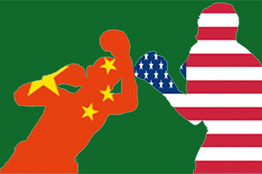FT op-ed by usually sensible Michael Pettis, who's unusually alarmist here (along with the headline of "The risk is rising of another global trade war"; did I miss the first one?).
Basic logic sound: the great imbalance is still there. China still relies too much on exports and America's trade deficit is back up there. The kicker is rising unemployment + the election:
In the months ahead, the US will be forced to choose either protection or soaring trade deficits with rising unemployment.
Do we blame the American consumer? No, says Pettis. Blame it on the shift in global trade imbalances.
Five countries or regions have largely driven these imbalances in the past decade. Three of them--China, Germany and Japan--run huge trade surpluses on which they are dependent for domestic employment growth.
Counterbalancing them have been the two trade-deficit champions--the US and trade-deficit Europe, dominated by Spain, Italy and Greece.
The financial crisis has undermined the precarious decade-long equilibrium between these blocs by forcing trade-deficit countries to reduce debt, especially household debt. As they do, the excess demand they provide to the rest of the world must decline. Trade-surplus countries have resisted this adjustment fiercely by trying to maintain or even increase their surpluses.
Which makes China lecturing America and Germany lecturing Greece all the more hypocritical.
Because we're such an open economy, we become absorber by default--until Congress steps in, argues Pettis. Currently we lack the industrial, currency intervention and interest-rate management policies that the trade-surplus state use at will. So we're left with tariffs and import quotas.
Powerful argument.
Second cite, an FT op-ed by John Plender, makes similar points, with historical examples (the 1920s-1930s shift from British to US power) to scare one a bit more.
He sees two likely paths, both of which will increase US trade protectionism: we go loose fiscally and rack up more debt, or the GOP prevents budget loosening while monetary policy stays lax. Either way, "creditor countries would ultimately see their chief market dry up."
